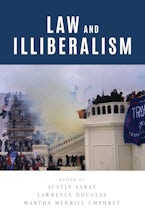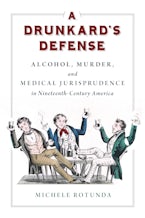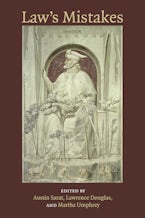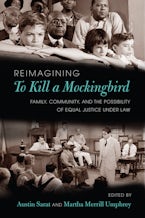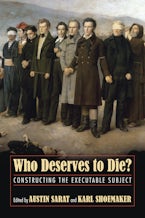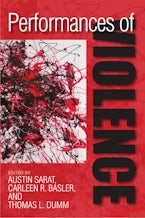- Home
- The Amherst Series In Law, Jurisprudence, And Social Thought
- Law and Mourning
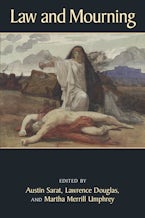
Law and Mourning
Edited by Austin Sarat, Lawrence Douglas and Martha Merrill Umphrey
Published by: University of Massachusetts Press
Series: The Amherst Series In Law, Jurisprudence, And Social Thought
184 Pages, 6.00 x 9.00 x 0.60 in
Other Retailers:
Law and Mourning brings together a distinguished group of scholars to explore the many and complex ways that law both regulates and gives meaning to our experience of loss. The essays in this volume illuminate how law helps us to absorb and contend with loss and its reverberations, channeling the powerful emotions associated with death and protecting those vulnerable to them. At the same time, law creates a regulatory framework for death as it establishes the necessity for a clear demarcation of the boundary between life and death, defines what we can and cannot do with the remains of the dead, and creates both privileges and disabilities for survivors. The contributors to the volume also explore how mourning generates critiques of existing legal and political orders which seem compelled by calls from the dead, unleashing an indifference to legal consequences in survivors that can undermine or destroy law.
In addition to the editors, the contributors include Andrea Brady, Catherine Kellogg, Shai Lavi, Ray Madoff, Ann Pelligrini, and Mark Sanders.
In addition to the editors, the contributors include Andrea Brady, Catherine Kellogg, Shai Lavi, Ray Madoff, Ann Pelligrini, and Mark Sanders.
Austin Sarat is William Nelson Cromwell Professor of Jurisprudence and Political Science and associate dean of faculty at Amherst College. Lawrence Douglas is James J. Grosfeld Professor of Law, Jurisprudence, and Social Thought at Amherst College. Martha Merrill Umphrey is director of the Center for Humanistic Inquiry and Bertrand H. Snell 1894 Professor in American Government in the Department of Law, Jurisprudence, and Social Thought at Amherst College.
"These essays lead the reader progressively deeper into the relationship between law and mourning, considering last testaments that restrict a beneficiary's marriage, sperm preservation, public rituals of mourning (and their suppression), melancholic judges, and the lamentations of scholars who mourn the loss of justice itself."—Linda Ross Meyer, author of The Justice of Mercy
"This volume demonstrates how varied and extensive the conjunction of mourning and law is, and it also makes a powerful case for how this intersection needs to be examined through an interdisciplinary lens. The contributors, all impressive and productive scholars, come from a broad range of fields, speaking across methodological and scholarly divides and opening avenues for further inquiry by inviting scholars to think creatively and ambitiously about our critical practices."—Ravit Reichman, author of The Affective Life of Law: Legal Modernism and the Literary Imagination

